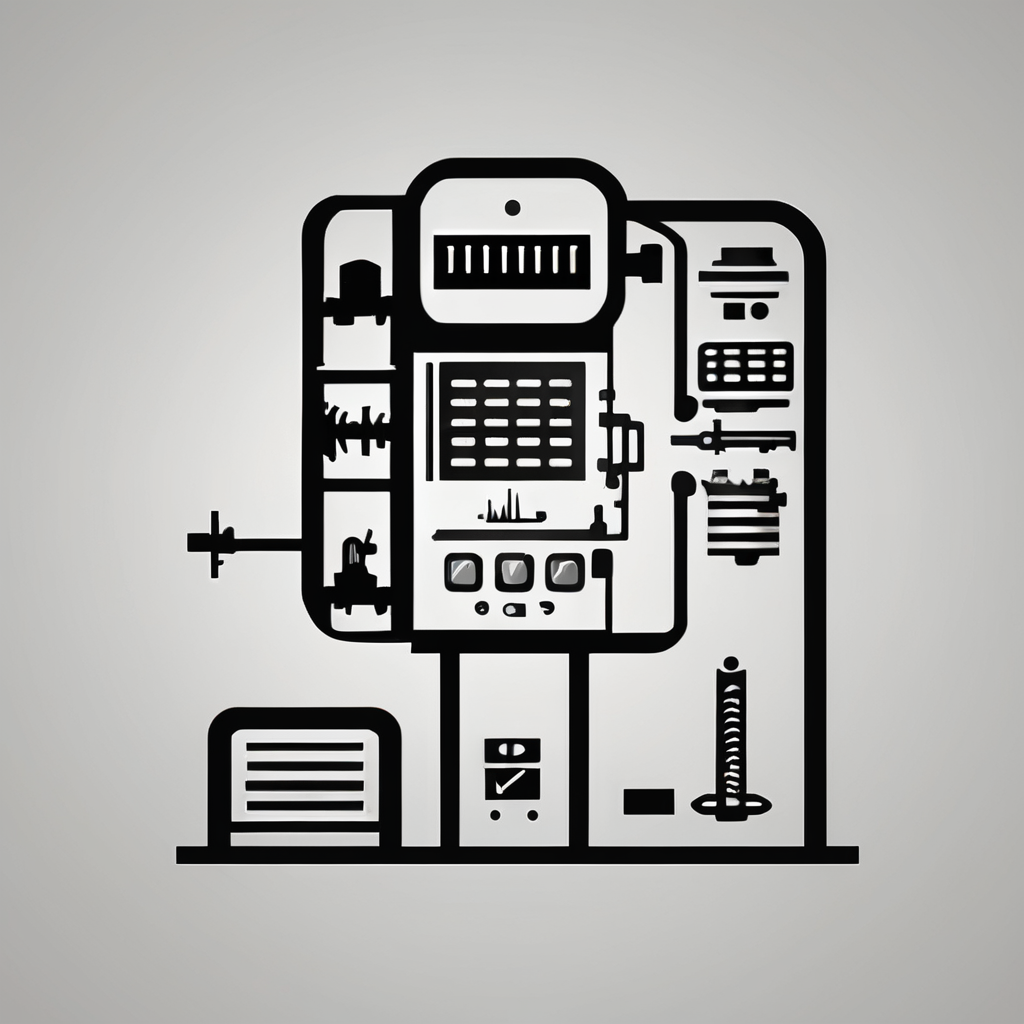Impact of Cutting-Edge Computing Technologies on Daily Life in the UK
The integration of advanced computing UK technologies like AI, IoT, and cloud computing is profoundly reshaping technology in everyday life. These innovations enhance convenience, connectivity, and service quality across sectors such as healthcare, transport, and retail.
For instance, smart devices linked via IoT enable seamless home automation, while cloud computing supports real-time data access essential for remote work and education. AI algorithms optimise public services, from traffic management to personalised content delivery, illustrating digital transformation UK in action.
Topic to read : Try nation ai: a fresh take on chat gpt for everyone
This tech fusion leads to tangible benefits: improved efficiency, better resource allocation, and enhanced user experiences. Rural and underserved communities particularly benefit as these technologies bridge traditional gaps in access and information.
Moreover, the digital transformation UK is accelerating economic growth by fostering innovation and enabling businesses to adapt swiftly. As these computing advancements become ubiquitous, the daily lives of UK citizens increasingly rely on reliable, secure, and user-friendly digital systems, marking a notable shift in how society interacts with technology.
Additional reading : Securing your business: the role of product lifecycle management
Transforming Healthcare Through Innovation
Advanced computing UK is revolutionising healthcare by introducing AI in UK healthcare to enhance diagnostics, treatment, and patient management. AI algorithms analyse vast medical data with precision, enabling earlier disease detection and personalised treatment plans tailored to individual patients’ needs. This precision significantly improves outcomes and reduces human error.
Telemedicine expansion, powered by the digital health UK framework, allows patients to consult healthcare professionals remotely, supported by cloud computing and IoT devices. These technologies facilitate real-time monitoring of health conditions through wearable sensors and home devices, ensuring timely interventions without the need for frequent hospital visits.
By integrating computing in medical services, NHS providers reduce operational costs, improve accessibility, and cater to rural or underserved populations more effectively. Remote patient monitoring reduces the strain on healthcare facilities while maintaining high service quality.
Overall, these advances bolden the digital transformation UK vision, making healthcare more efficient, cost-effective, and patient-centric. As innovative technologies continue to evolve, their impact on UK healthcare systems promises to deepen, fostering a future where medical services are smarter, faster, and more accessible for all UK residents.
Shaping Education and Learning Experiences
The landscape of computing in education in the UK is transforming dramatically through edtech UK initiatives. Advanced computing UK enables the widespread adoption of e-learning platforms that facilitate flexible access to educational resources. Schools and universities increasingly rely on AI-driven personalised learning systems, which tailor content and assessments to individual student needs, boosting engagement and performance.
How does this technology bridge educational gaps? By delivering quality digital learning UK tools to remote and underserved regions, learners gain access to the same high-standard materials as their urban counterparts. This helps reduce disparities caused by location or socioeconomic status.
Moreover, computing technology supports collaborative environments where students and teachers interact virtually, enriching traditional classroom experiences. Real-time data analytics track progress and identify areas needing support, allowing educators to intervene promptly.
Examples include AI tutors that adapt explanations based on student responses and virtual labs providing hands-on experiments remotely. These tools highlight how digital transformation UK in education goes beyond convenience—it actively enhances learning outcomes.
In sum, computing in education is not only modernising teaching methods but also fostering inclusivity and personalised learning, making education in the UK more accessible and effective than ever before.
Smart Homes, Cities, and Connected Living
As advanced computing UK technologies merge with everyday environments, smart homes UK and smart cities UK exemplify this digital transformation UK. IoT UK devices—such as smart thermostats, lighting, and security systems—integrate seamlessly into UK homes, offering unprecedented convenience and energy efficiency. These smart appliances adjust automatically to residents’ habits, reducing utility costs and enhancing comfort.
In urban contexts, smart cities UK harness IoT sensors and data analytics to optimise traffic flow, waste management, and public safety. Real-time data collection enables authorities to make decisions that improve quality of life and respond swiftly to emergencies. For example, smart street lighting adjusts based on pedestrian presence, cutting energy consumption without compromising safety.
Such connected living advances also promote environmental sustainability by monitoring pollution levels and managing resources efficiently. These technologies contribute tangibly both at home and citywide, reflecting how technology in everyday life utilises computing innovations to create responsive, intelligent environments for all UK citizens.
Computing Technology Driving Business and Economy
The digital economy UK is rapidly advancing as businesses harness cloud technology business UK solutions and AI for UK businesses to boost efficiency and innovation. Companies are adopting automation powered by advanced computing UK to streamline operations, reducing manual effort and increasing productivity. For example, AI algorithms optimise supply chains by predicting demand and managing inventory, saving costs and minimising waste.
Customer service benefits from AI chatbots and virtual assistants that provide instant responses, enhancing consumer satisfaction. These technologies enable SMEs and large enterprises alike to innovate faster, launching customised products informed by data analytics and user behaviour insights.
Moreover, cloud computing supports scalable infrastructure, allowing UK businesses to adapt swiftly to changing market conditions without huge upfront investments. This flexibility is vital in competitive sectors and during uncertain economic times.
These changes collectively underpin the UK’s digital transformation UK, positioning businesses to compete globally while delivering improved services domestically. As computing advances continue, the economic landscape is set to become increasingly dynamic, data-driven, and efficient, offering promising growth opportunities across industries.
Navigating Challenges and Policy Considerations
Technology policy UK is crucial in addressing the complex issues stemming from widespread adoption of advanced computing UK. Data security UK remains a primary concern, as increasing reliance on cloud storage and IoT UK devices expands potential vulnerabilities. Ensuring robust cybersecurity measures protects sensitive information from breaches, safeguarding both individuals and organisations.
Digital ethics UK also plays a vital role, focusing on responsible AI use and fairness. Questions arise around bias in algorithms and the transparent handling of personal data, demanding clear ethical guidelines. How are these challenges managed? UK regulators have introduced comprehensive frameworks to enforce privacy laws and promote accountability, striking a balance between innovation and protection.
Digital inclusion is another policy priority. Efforts aim to ensure all UK citizens benefit from technology in everyday life, preventing digital divides in access or skills. Initiatives promote affordable broadband and digital literacy programs, particularly targeting underserved communities.
In summary, technology policy UK addresses the intertwined issues of data security UK, digital ethics UK, and equitable access, enabling a trustworthy and inclusive digital transformation UK. By adapting regulations to emerging challenges, the UK fosters a technological landscape that prioritises both innovation and societal well-being.
Future Trends and the Path Forward
Anticipating the future of computing UK involves examining emerging technologies such as AI advancements, quantum computing, and edge computing. These cutting-edge innovations promise profound impacts on how we live and work. For example, quantum computing could revolutionise data processing speeds, enabling solutions to problems currently beyond classical computers’ reach. This potential leap will enhance sectors like drug discovery, cryptography, and complex modelling.
What are the major UK technology trends shaping this future? Increasing integration of AI with IoT and cloud infrastructure is driving smarter automation and decision-making across industries. The rise of edge computing reduces latency, supporting real-time applications in sectors from autonomous vehicles to industrial IoT.
Collaboration between research institutions, businesses, and government accelerates innovation while addressing ethical considerations and scalability. Investing in skills development ensures the UK workforce can adapt to new roles engendered by evolving technologies.
By focusing on these future trends, the UK positions itself to maintain leadership in global digital transformation UK, fostering economic growth and societal benefits through responsible and inclusive technological progress.


